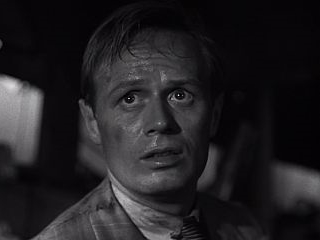The Gilded Age (book; Karin Tanaba, 2016)
Inspired by the true story of Anita Hemmings, an African American woman who passed as white to attend Vassar University, The Gilded Age is a combination of 19th Century romance and thriller. It takes a bit of time to get going, but once Anita begins to be accepted by her friends' upper-class world, it becomes really suspenseful. Sadly relevant.
Seduction of the Innocent (book; Max Allan Collins, 2013)
A murder mystery set in the world of American comic books during the 50s, this is a fun little page turner. It's a throwaway book in the best sense of the word - Collins has a solid grasp of the idiom and cultural context, which gives the book a sense of colour.
A murder mystery set in the world of American comic books during the 50s, this is a fun little page turner. It's a throwaway book in the best sense of the word - Collins has a solid grasp of the idiom and cultural context, which gives the book a sense of colour.
Lovesick: Season 3 (Netflix)
An interesting impasse for the characters (and the creatives?).
The main focus has shifted to Luke, as he attempts a redemption tour of all the women he has been with. The big moment is Jonesy defending her choice to not be involved in a relationship. It's a POV you do not see enough of. Sadly the season ends with Jonesy throwing that away to give it a go with Luke. It's the one time the series feels really contrived - here's hoping it pays off.
Booty Call (Jeff Pollack, 1997)
One night, two pairs of friends go on a double date. Hijinx ensue.
The movie is based on a fun concept that we have seen before: over the course of the night, the male characters are forced to go on a journey through the city to find some condoms. Ala After Hours, during their quest they stumble into strange incidents and weird characters.
Despite a good cast (Jamie Foxx, Tommy Davidson, Vivica A. Fox and Tamala Jones), the movie is not that good. My main problem with the movie is that the guys are creeps, the women clock onto this, but then thanks to a series of contrivances, they end up together by the end. It's not terrible, but it just was not that funny.
After watching these two back-to-back, while the original is a better movie, I think I prefer Eddie Murphy's version of Buddy Love to Jerry Lewis's - he feels more antagonistic. The standouts in both movies are the university president, played by Del Moore in the 1962 version and Larry Miller in the 1996 version.
Zero Minus Ten (book; Raymond Benson, 1997
Re-reading for a secret project.
Colonel Sun (book; Kingsley Amis, 1968)
Re-reading for a secret project.
Moonraker (Lewis Gilbert, 1979)
Re-watching for a secret project.
Fast Girls (Regan Hall, 2012)
A fun little sports movie about a runner from the wrong side of the tracks who learns to be part of a team. I caught this movie within a few days of starting The Expanse and The Girl With All The Gifts. All three feature Dominique Tipper in supporting roles - it was kind of unsettling to see her pop up three times in completely unrelated things
The Expanse (Netflix; Season One)
This is right in my wheelhouse - political intrigue, detective work and an interesting conspiracy involving three different societies. I think I might write something about this in the future.
This is right in my wheelhouse - political intrigue, detective work and an interesting conspiracy involving three different societies. I think I might write something about this in the future.

























